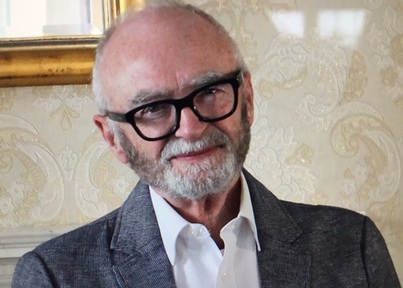Nurseries urged to look out for signs of autism on World Autism Awareness Day
This week saw the 7th World Autism Awareness Day, a condition that affects around one in every 100 people although many charities believe the condition to be widely misunderstood by the general public.

Susan Tron, grants and trusts fundraiser at the North East Autism Society, points out that “Autism is much more common than people think. More children will be diagnosed with autism this year than with diabetes, cancer, & AIDS combined.”
Yet the help available to families who discover or suspect their child has autism is not always immediate, or simple to source, even though experts agree that early intervention is crucial in helping parents and children adapt to the challenges ahead.
Diagnosis
Chrstine Swabey, chief executive of charity Austistica, shares with daynurseries.co.uk her own expertise and calls for more efforts to bring down the age of diagnosis.
She explains: “The average age of autism diagnosis in the UK is approximately five years, even though most parents notice that their child is developing differently around their second birthday. The delay to diagnosis is very stressful for families, who have no explanation for why their child is acting differently.
“Crucially, the delay also means that key opportunities to provide support are missed. We know that intervening as early as possible, when the child’s brain is still developing, is most effective and the best way for the child to build new skills.”
Nurseries have a vital role to play here as many have links with specialists that can help give parents expert advice and support.
Ms Swabey would like to see more awareness of the condition among early years practitioners and more knowledge of the signs that indicate a child is autistic.
She concludes: “We must do more to bring down the age of diagnosis and provide interventions that will give children with autism the best start in life. Autistica is proud to be funding groundbreaking research to understand the earliest signs of autism and develop new ways to support children.”
Empowerment
Kerry-Anne Lowe, from Autism West Midlands’ education support team, also focuses on the importance of swift diagnosis, commenting:
“Early Intervention is extremely important in setting up young people with autism for a positive future, and empowering parents to give their children the best possible support. Early Intervention enables parents to gain the knowledge, understanding and skills they need to make a positive impact on their child’s life as early as possible and prepare for difficulties that may arise.”
Ms Lowe continues: “Research shows us that the brains of younger children are better able to learn and develop new skills. That is not to say that older people with autism cannot develop new skills or positive coping strategies – but it is a lot harder for them to do. Children with autism can quickly develop negative or destructive behaviours and routines to help them cope with the extremely confusing world around them – once established, these coping mechanisms can be extremely difficult to change. The earlier we identify difficulties then the sooner we can start to put appropriate support in place to help the child manage the world around them – therefore minimising the behaviours / routines before they become established.
“With better diagnosis pathways in place, and wider awareness of autism than ever before, many more children and their families are now getting the support they need at the right time. This means that there will be a whole new generation of adults with autism who have had the right support right the way through their lives, with a whole new world of opportunities open to them.”
Intervention
Susan Tron agrees there is a great deal to gain if support within the early years can be strengthened, saying: “ Early diagnosis and intervention can lead to very positive improvements in a child’s relationship with the world around them.”

However, there are a multitude of problems that need to be tackled in order for families to benefit.
Ms Tron continues: “Unfortunately there is currently no autism specific support for pre-school age children newly diagnosed or awaiting diagnosis and mainstream nursery will not be an option for these children. This is a particularly difficult time for parents struggling to come to terms with a life changing condition and a disability that is difficult to understand. We regularly get requests at the North East Autism Society from parents for early years support.
“Very young children with autism can benefit from targeted intervention that focuses on developing communications, language, interaction and play. Research also indicates this should commence as soon as possible and certainly even before a formal diagnosis is made. Small investments now will enable every toddler and child to acquire social and emotional foundations and break challenging patterns of behaviour before they become established. Parents too can learn strategies that can be used in the home to reduce anxieties and will be able to be an important part of the team around the child.
“We know that it is key to provide parents of children who have just received a diagnosis support to help them through the huge emotional adjustment.”
Ms Tron hopes that events like World Autism Awareness Day will also impact upon public awareness, saying, “It is a condition that is still widely misunderstood. Parents frequently complain about children being excluded from school or asked to leave restaurants because they are too noisy. There is still relatively little public awareness of what autism or its effects are.
“World Autism Awareness Day is important because it helps to increase awareness and understanding that will ultimately help us support children, young people and their families more effectively.”
Research
New techniques are currently being developed at Sheffield Autism Research Lab, where a team led by Dr Elizabeth Milne is looking to establish a diagnosis that can be applied easier and earlier.
Dr Milne comments: “Here in Sheffield, we are working towards developing new techniques that can be used to enable earlier and easier diagnosis. Specifically we are working to find a brain-based signal for autism that can be used to identify individuals who have, or are likely to have, autism.
“We are also studying sensory function in autism in an attempt to understand why people with autism often experience heightened sensitivity to some sensory stimuli. In addition, we are collaborating with social psychologists in order to understand the public perception of autism, and to develop interventions that will improve the public perception of autism.”
Dr Milne continues: “Living with autism, or with a family member who has autism poses a number of challenges. Researchers and the medical community are working hard to understand the causes of autism and to develop techniques and interventions that can provide support to people with autism and their families.
“There is still a long way to go in this regard though, which is why raising awareness of autism through World Autism Day is so important. “The amount of funding for autism research differs between countries. According to a report produced by the Institute of Education, in 2010 the US allocated £75.79 per person with autism to autism research, whereas the UK allocated just £4.26 per person with autism.
“World Autism Day is an opportunity to highlight autism as a priority area for practitioners, clinicians, local authorities and researchers and to encourage the government to allocate more resources to this condition.”
Anyone interested in donating one hour's salary to help change a lifetime, please visit www.autistica.org.uk/world-autism-awareness/index.php#c
Latest Features News
 31-Oct-19
Reward stickers at nursery accused of having a 'dark side'
31-Oct-19
Reward stickers at nursery accused of having a 'dark side'
 18-Sep-19
Neuroscientist tells nurseries to ditch stereotypes as they create gendered brains
18-Sep-19
Neuroscientist tells nurseries to ditch stereotypes as they create gendered brains
 03-Sep-19
School readiness: Nursery chief says four-year-olds are too young for 'big school'
03-Sep-19
School readiness: Nursery chief says four-year-olds are too young for 'big school'
 24-Jul-19
Nurseries 'fed up' of early years being used as political football, says ex-children's commissioner
24-Jul-19
Nurseries 'fed up' of early years being used as political football, says ex-children's commissioner
 21-Jun-19
Forest school experiment: How my tidy preschooler went feral for the day
21-Jun-19
Forest school experiment: How my tidy preschooler went feral for the day